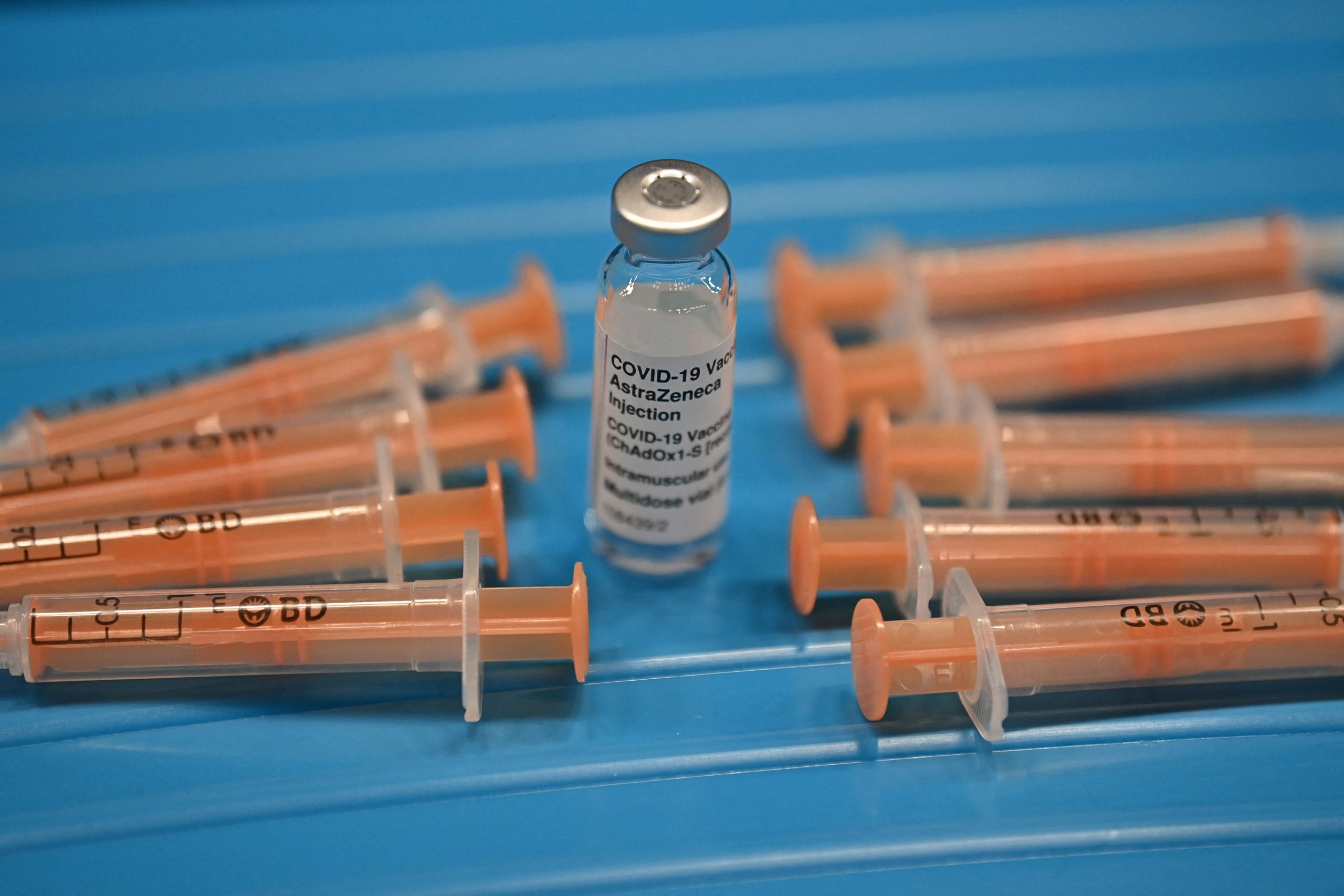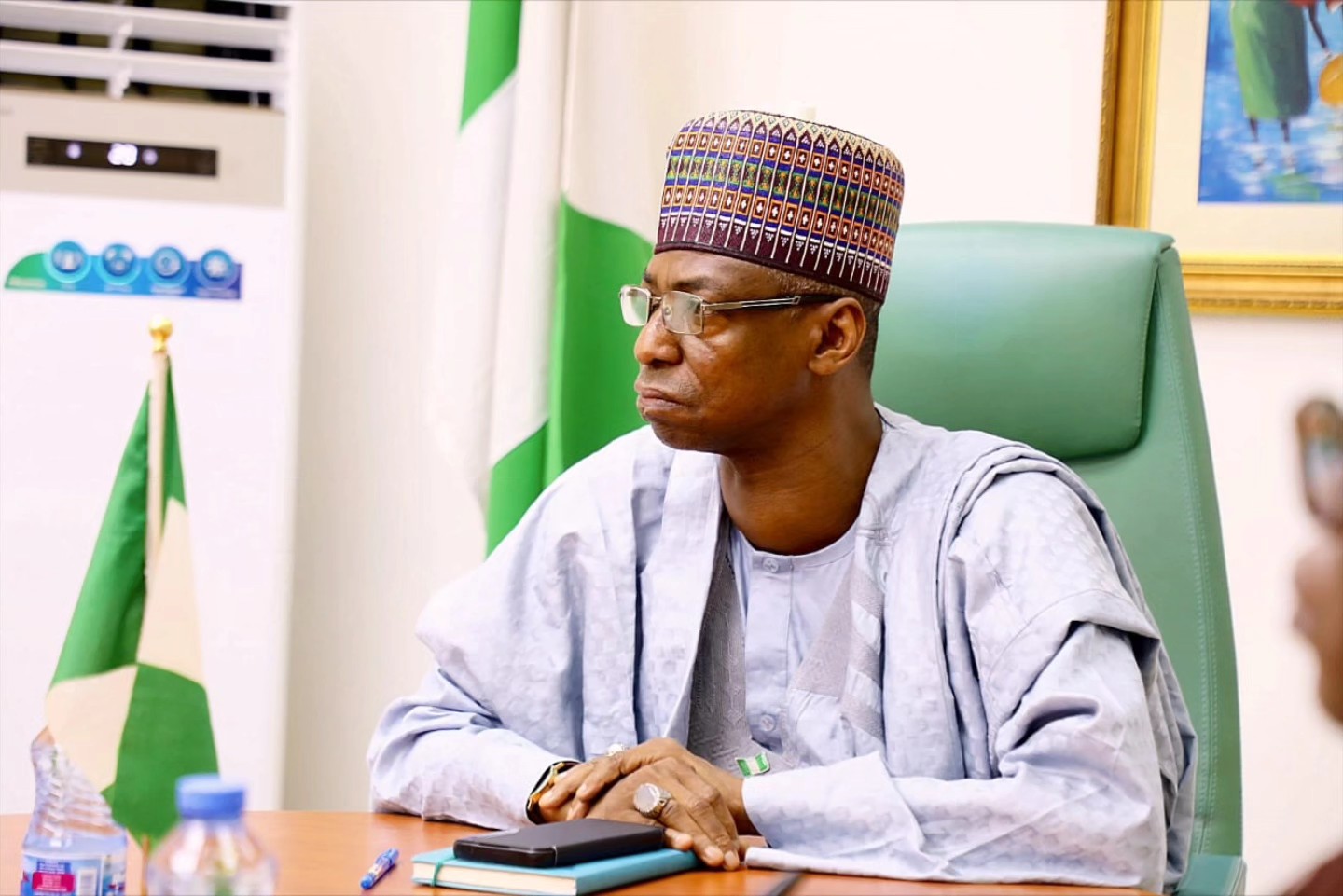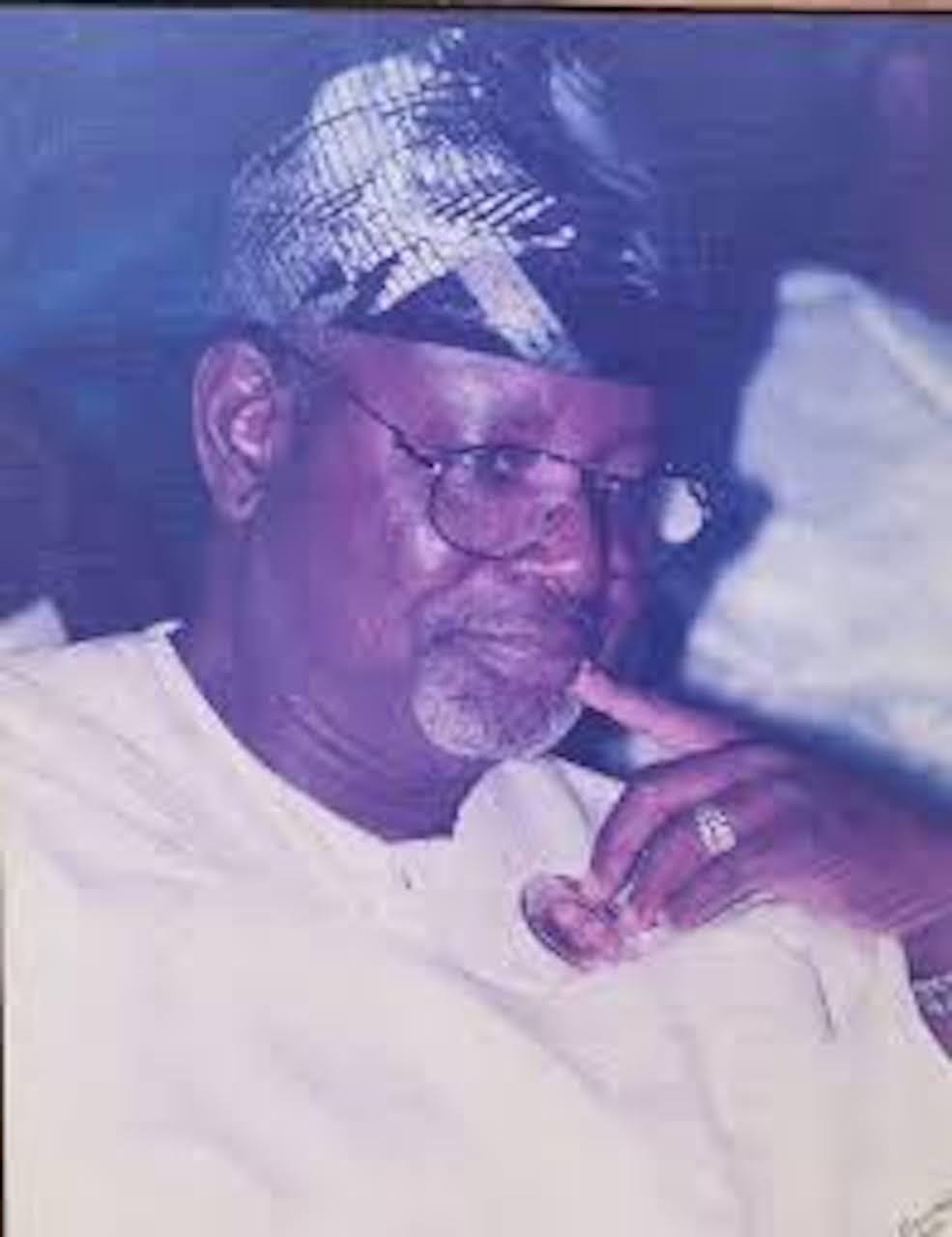[dailymotion code=”undefined” autoplay=”yes”]
• How pandemic opened up talents of Nigerian scientists, by Buhari
• Ramadan: WHO warns of a possible surge in COVID-19 pandemic
• 2% of 690 million COVID-19 vaccines administered in Africa
• Africa CDC wants the continent to produce 60% of its vaccines need
• NPHCDA partners with ICPC to ensure accountability in deployment, administration of vaccines
• FAAN raises concern over the violation of COVID-19 protocol
A new strain of Coronavirus currently killing twice as many people as other variants have been detected in Kent, a county in Southeast England, a UK-based newspaper, Daily Record has announced. The new variant discovered in Nigeria has sparked fears it could be even deadlier than the South African form, according to reports.
Experts in the country are concerned a rise in cases of mutant strains this week could impact lockdown, resulting in restrictions being pushed back.
Believed to have originated in Nigeria and known as B1525, it is so far found to have killed 4.3 per cent of the people it has infected. That is almost double the 2.3 per cent killed by the now dominant new strain widely known as the Kent variant, which itself was found to be more deadly than the original Coronavirus strain.
The Nigerian strain also carries the feared mutation known as E484K, which helps it evade antibodies, potentially making vaccines less effective.
It is so-called reportedly because of the number of cases in Nigeria and in travelers from Nigeria. The strain is currently only listed as a “variant under investigation” by Public Health England. But there were already at least 277 cases recorded in England by March 20, making it the second most numerous new variant behind the South African strain.
Most cases appear to be in London, Northwest, and Southeast England, which make up almost a quarter of the cases.
Public Health England has however warned that the increasing numbers are largely due to increase in checking for variants. A spokesperson said: “PHE is monitoring data about emerging variants very closely and where necessary, public health interventions are being undertaken, such as extra testing and enhanced contact tracing.
“The number of positive PCR tests currently being genomically sequenced has risen to 40 per cent from five per cent in January, which in turn has contributed to a rise in confirmed cases of a number of variants. It is unlikely that a single mutation would stop any vaccine from working completely and recent studies show the vaccines we are now deploying are effective against the dominant variants in the UK.
“The best way to stop the spread of the virus is to follow the public health advice – wash your hands, wear a face covering and keep your distance from others.”
It is understood that surge testing is not yet being carried out in relation to the Nigerian strain, because it is still designated as a “variant under investigation” not a “variant of concern”. So far, it has killed 12 of 277 people found to have been infected with it, compared to nine of 410 for the South African strain.
Chairman, Expert Review Committee on COVID-19, Prof. Oyewale Tomori, told The Guardian yesterday: “The new Nigerian strain in UK was discovered in Nigerians arriving UK. A lot of the cases they are finding are because of the strain.”
HOWEVER, describing Nigerian scientists as worthy assets to be nurtured, President Muhammadu Buhari has observed that the COVID-19 pandemic revealed the potentials, talents, and creativity of scientists. In a speech delivered yesterday by Vice President Yemi Osinbajo, at a public forum organised by the Nigerian Academy of Engineering, the President commended Nigerian engineers for the diversity of their experience and competence.
According to him, “the pandemic has truly opened up the immense talents and creativity of Nigerian scientists and engineers and if the current momentum is supported, the next few years could be incredibly exciting.”
Speaking on the important role of Science, Technology, and Engineering in dealing with the pandemic, the President noted that the world “turned to these disciplines for immediate solutions and answers. I am sure that as engineers, you will agree with me that one of the most poignant lessons of the response to the pandemic is the critical interdependence of science and engineering.”
Giving an update on the production of a local vaccine, the President noted that the African Centre of Excellence for the Genomics of Infectious Disease located at Redeemer’s University Ede, has “developed an efficacious rapid test for COVID and has been working on a vaccine in collaboration with DIOSynVax (Digital Immune Optimised Synthetic Vaccines), Cambridge UK, using the DIOSynVax genomic-based technology.”
“There are also efforts going on therapeutics of various kinds. The development of vaccines, tests, and therapeutics these days are aided by automation, machine learning and artificial intelligence, so this is a strong point of synergy between science and engineering.”
Citing the opportunities presented during the lockdown period, President Buhari stated the “huge potential for the creation of effective technologies for telework activities, including Telemedicine and Fintech.”
Present at the public forum attended virtually by the Vice President were the Governor of Lagos, Mr Babajide Sanwo-Olu; President of Nigerian Academy of Engineering, Engr. Alex O. Ogedegbe; Executive Secretary of Nigerian Academy of Engineering, Engr. Titi Omo-Ettu; guest speaker, Engr. Prof Babatunde Ogunnaike and other top officials of the academy.
AS Ramadan, the Muslim fasting month begins today amid restrictions for the second year due to the pandemic, the World Health Organisation (WHO) had warned of a possible surge in COVID-19 infections during the holy month.
Muslims usually celebrate by large social and religious gatherings, such as special evening prayers, where mosques are traditionally packed.
However, many restrictions due to the coronavirus would limit some practices for the second year. With the coronavirus pandemic appearing largely under control, most worshippers would be permitted to perform congregational prayers in mosques.
On the fear of surge in cases and deaths due to Ramadan, Tomori, who is also a virologist and pioneer Vice-Chancellor, Redeemer’s University, said: “There is a potential of further spread of the virus. Ramadan and going to Mecca is another issue.”
Amid the scare of a third wave, on a global scale, less than two per cent of the 690 million COVID-19 vaccine doses administered to date have been in Africa with the pace of vaccine rollout not uniform. A WHO data reveals that 93 per cent of the doses have been administered only in 10 countries.
As of April 6, Morocco had administered over 8.3 million Coronavirus vaccination doses since the country started the immunisation campaign in January, thus having the highest number of COVID-19 jabs administered in Africa out of the 13 million doses delivered to the continent.
Nigeria comes second as the most vaccinated country in Africa but some way off the North African country with just over 964,000 doses distributed. South Africa, which has the highest number of COVID-19 infections in the continent, has administered some 272,000 doses.
Overall, more than four million people have been infected by the virus in Africa since the pandemic began more than a year ago.
Reacting to the low vaccination rate, the African Centre for Disease Control (Africa CDC) Director, John Nkengasong, has said a coordinated approach and vaccine manufacturing sites per region will be essential in the bid to achieve the continent’s manufacturing goals, adding he would like to see the continent produce up to 60 per cent of the vaccines it needs in the next 20 years. Currently, the continent only produces one per cent of all its vaccines, importing the rest.
The CDC in conjunction with the African Union (AU), yesterday began a two-day conference to look at boosting Africa’s capacity to manufacture and develop vaccines.
“We believe that we can begin to shift the needle where we are today in 2021 to where we believe we can be in 2040 where we shift the needle and rather than import 99 per cent of our vaccines, we begin to import about 40 per cent of our vaccines in 20 years. And we need to develop a regional approach where it’s coordinated and have vaccine manufacturing sites per region – this is what we call a step-wise process towards achieving manufacturing goals in four or five regions,” he said.
MEANWHILE, ahead of the April 16 Federal Government’s target date for states to end the first phase of COVID-19 vaccination, statistics from the National Primary Health Care Development Agency (NPHCDA) has shown that Lagos, Ekiti, Ogun, Ondo, Osun, Katsina, Yobe, Kwara, Niger, Adamawa, Gombe, Jigawa, and Kaduna states have vaccinated between 60 per cent and 111 per cent of the targeted population under the first phase.
In the same vein, the Federal Capital Territory (FCT) and Abia, Anambra, Akwa Ibom, Ebonyi, Enugu, Rivers, Sokoto, Kogi and Taraba, were still below 50 per cent of the target.
The NPHCDA says it is working with the Independent Corrupt Practices and other Related Offences Commission (ICPC) to ensure accountability and transparency in the deployment and administration of vaccines. Executive Director of NPHCDA, Dr Faisal Shuaib, who disclosed this in a statement yesterday in Abuja, said the collaboration will ensure all appropriate anti-corruption, accountability, and transparency measures are established and sustained throughout the four phases of the COVID-19 vaccination campaigns.
Shuaib noted that the ICPC will track and monitor the deployment and use of COVID-19 vaccines across the country, with a focus on four critical areas – theft and embezzlement; service provision; vaccine availability; and advisory.
The NPHCDA boss urged Nigerians to report any act of corruption in the vaccination process to NPHCDA or ICPC.
The National President, Medical and Dental Consultants’ Association of Nigeria, Prof. Kenneth Ozoilo, has urged Nigerians, including health workers, not to let down their guard against COVID-19, saying the pandemic is still very much around.
Ozoilo, who lauded the government’s effort in providing COVID-19 vaccines for citizens, however, urged Nigerians “to avail themselves the opportunity to get vaccinated as the benefits of doing so far outweigh the risks”.
In another vein, the Federal Airports Authority of Nigeria (FAAN), yesterday, raised concern over the violation of COVID-19 protocols at airports, especially Murtala Muhammed Airport, Lagos. The authority said the mandatory guidelines remain active, and compulsory for all stakeholders to be compliant.
General Manager, Corporate Affairs FAAN, Henrietta Yakubu, advised passengers, drivers and other airport users, particularly those at the General Aviation Terminal, Lagos, to comply with all laid down protocols on COVID-19 to ensure safety of all airport users.
Yakubu said: “All arriving passengers are to walk down to designated car parks to board their vehicles. No driver is permitted to pick up arriving passengers at the frontage of the terminals. All drivers must park and wait inside the car parks while arriving passengers walk down to the car parks to board their vehicles.”
For departing passengers, “drivers are only allowed to drop off passengers in front of the terminals. They are not permitted to wait for any reason after dropping their passengers; it is only a ‘Drop Off’ zone.”






